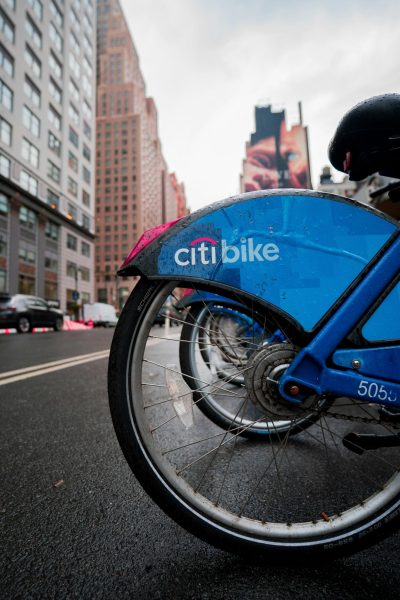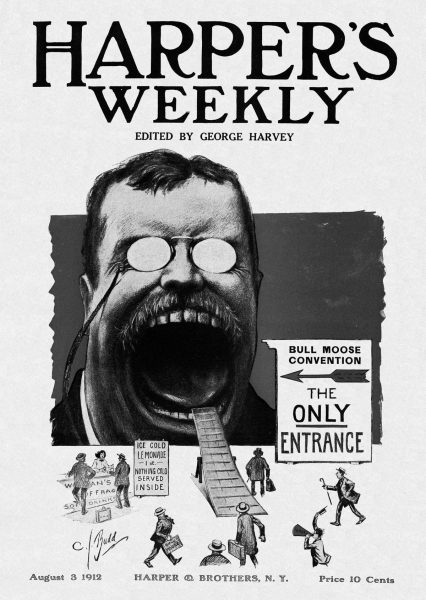Generation War
From Hippies to Snowflakes
Saamiya Ahmed ’22 criticizes radio host Bob Lonsberry’s views on the use of the word “boomer,” explaining that there is a clear divide on words that can and cannot be said.
Wars between older and younger generations are events that never fail to happen in a century. Just a few years ago there were papers and journals documenting the feud between the baby boomers and the millennials on matters such as workplace efficiency and student debt. Looking back to the 1960s, there is a major note of the feud between the baby boomers (1946-1964), then hippies, and the Greatest Generation (1901-1927). According to Mr. O’Grady, English teacher, the many changing political views and views on cultural matters created a rising tension between the younger and older generation. “I, a member of the Woodstock Generation, (I was at the festival) often had conflicts with my parents who were members of the “Greatest Generation” of the Great Depression and World War II. The conflicts usually revolved around changing attitudes about “race” relations, and religion,” said O’Grady. As the phrase goes, history tends to repeat itself; the most recent intergenerational conflict being Generation Z versus the baby boomers.
As a consequence of the most recent generational war, that of the boomers against the millennials (1981-1996), younger generations have developed a negative opinion of their elders. The boomers hounded millennials for their “poor work-ethic” because millennials have a tendency of not staying in long-term job positions. News outlets and journals have deemed millennials to be lazy, with many complaints being published about them online from the New York Times, Inc, Time and more. Millennials were unable to defend themselves at the time these articles were written due to their young age. Although arguments could be made for both sides, the idea that millennials were poor workers had already been set in the mind of employers.
Eventually, the war began to die off, with millennials fading long into the distance only to be replaced by the newest technological generation, Generation Z (1997-2012). The upcoming Generation Z, otherwise known as iGen, Zoomers, Gen-Z or Net Gen, are known as the generation who grew up with technology. Technological change separates generations now, more than ever. Older generations are more resistant to change, especially changes involving technology. Consequently, a new flood of newspaper outlets are reporting on a technology addiction, many having valid criticisms and concern about the rapid technological expanse. Commonly listed apprehensions include the harmful effects of computer screens on the unprotected eye and the possibility of phone radiation. However, these tend not to stick out compared to the articles aimed at fueling the next generation war. Professional publications have directed nicknames like “Snowflake” and “Peter Pan” toward younger generations, referring to their supposed inability to grow up.
Generation Z did not take this standing down, and instantly retaliated with their own movement— “OK Boomer.” Originating as a sarcastic remark, “OK Boomer” has been used around social media sites, such as Reddit, as a way to roll eyes at someone’s older ideals. Now, it represents much more. It is used as a retaliation to all the injustices that Generation Z will inherit from previous generations, including climate change, financial inequality and the increasingly costly college tuition. Climate change has been the biggest political divider between the generations, according to a CBS News poll, 70% of eighteen to twenty-nine year olds believe that climate change is a serious crisis. This is opposed to 61% from ages forty-five to sixty-four and 58% from ages sixty-five and up. While this data does present a divide, it’s also shows that people of all ages still consider climate change an issue, even if some may not have to experience it. “My experience has been that our attitudes about any issue often depend upon the extent to which change is going to cause us any inconvenience… However, I think that it is also true that when we are young we are often more attuned to the unfairness and injustices of life. And, since it is a world that you are going to inherit, there is a natural impulse to want to make it a better place,” said O’Grady.
This sentiment only grew with the growing fame of Greta Thunberg, a Generation Z climate change activist, and has continued through the students of Bronx Science. “Baby boomers thought that they suffered the most out of all of us and believed that they were the ones that worked the hardest. They failed to address the world’s problems and blame it on us. They have the mentality that if you work hard enough that you can achieve anything, but don’t realize that mentality doesn’t work with the new status-quo,” said Jennifer Lee ’22.
However, this sentiment is generally overlooked, the phrase is commonly used instead as a snap remark to almost anyone and everyone. Normally it is intended as a harmless joke, albeit to the displeasure of those who do not understand it. However, many believe that the phrase is much more sinister. On November 4th, 2019 conservative radio host Bob Lonsberry tweeted, “‘Boomer’ is the…of ageism. Being hip and flip does not make bigotry ok, nor is a derisive epithet acceptable because it is new.” This reaction, of course, exploded online.
Lonsberry’s tweet was met with widespread criticism from members of both Generation Z and baby boomers who mocked Lonsberry and refuted his views. “The fact that he can’t say the word but can say ‘boomer’ shows the difference between the words,” said Saamiya Ahmed ’22.

Jennifer Lee ’22 believes that the mentality around work has changed and different efforts have to be taken to reach the goal of success and happiness.
Wars between older and younger generations are events that never fail to happen in a century.
Sophie Livingstone is an Editor-in-Chief for ‘The Science Survey.’ She enjoys both journalistic and creative writing and the influence that one can...











